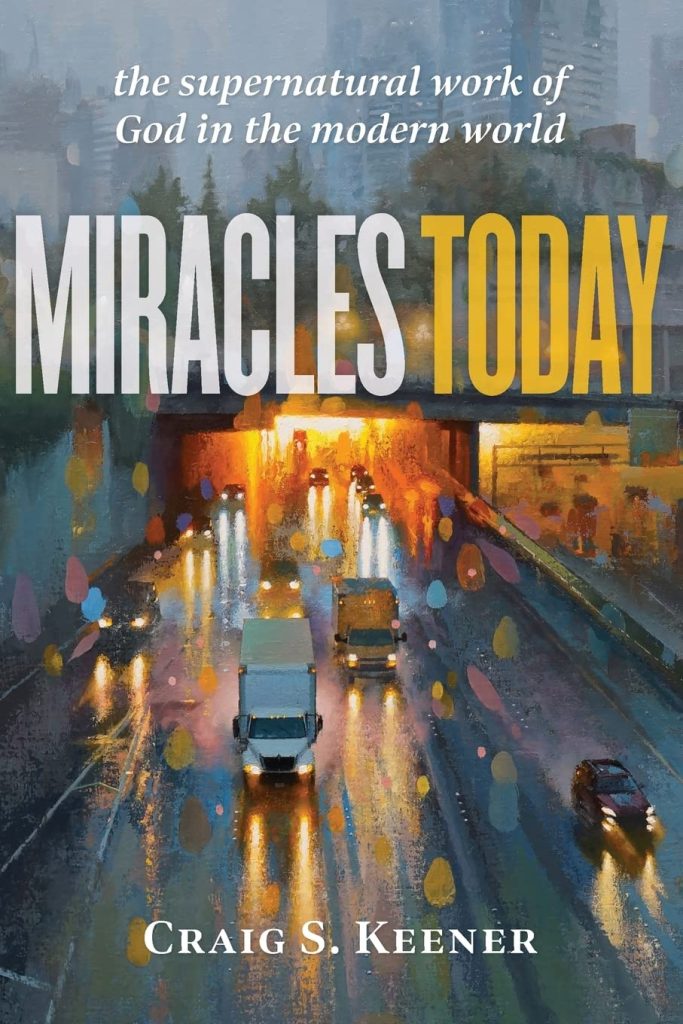Craig Keener’s new book

Grand Rapids: Baker Academic, 2021. ISBN 978-1-5409-6383-3.
Craig Keener has written a substantial, two-volume book on miracles in which he explains and defends a classic Christian view that remarkable out-of-the-ordinary events take place which defy naturalistic explanation, Miracles: The Credibility of the New Testament Accounts, 2 vols (Grand Rapids: Baker Academic, 2011). That book particularly engages debates about the presence of such events in the New Testament. This book, by contrast, is set in a less academic key, and aims to provide testimony to many such events today.
Keener does not avoid the philosophical/theological questions about miracles, but handles them (much) more succinctly than in the earlier book: the first 48 pages handle a definition of miracle, the classic objections of David Hume, and the question of whether witnesses of miracles can be trusted. The balance of the book, some 180 pages, is given over to reports which Keener is satisfied are genuine of such events in recent times. He organises the reports around themes: doctors’ reports, cancer cures, recovery of sight, being able to walk after lameness, raisings of the dead, and so-called nature miracles. In each case he is careful to document the events, and in quite a number of cases he has spoken to the witnesses himself. Interestingly (for a Pentecostal writing on this) he includes verified healings at Catholic shrines like Lourdes. A final section then reflects on these stories, considering why such events are seen less in the West, temporary healings, lack of healing, and three appendices.
The chapters are short—typically 10 pages or so—and Keener writes accessibly and readably, avoiding technical theological jargon. I found myself very convinced by these accounts, and encouraged that God can and does act in such ways today. Keener is far from the naive ‘God heals everyone if they have faith’ approaches of some ‘health and prosperity’ teachers—this is a nuanced, well-evidenced and thoughtful account which repays reading.


1 Response